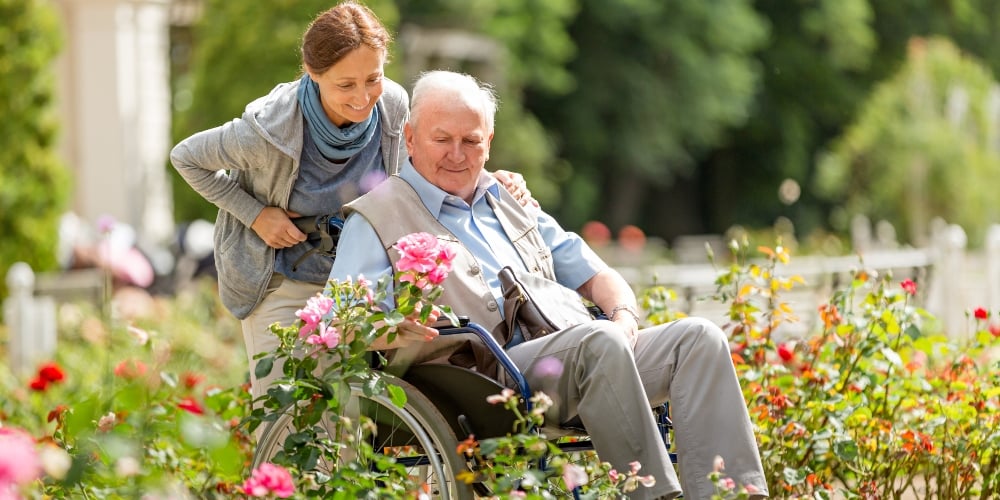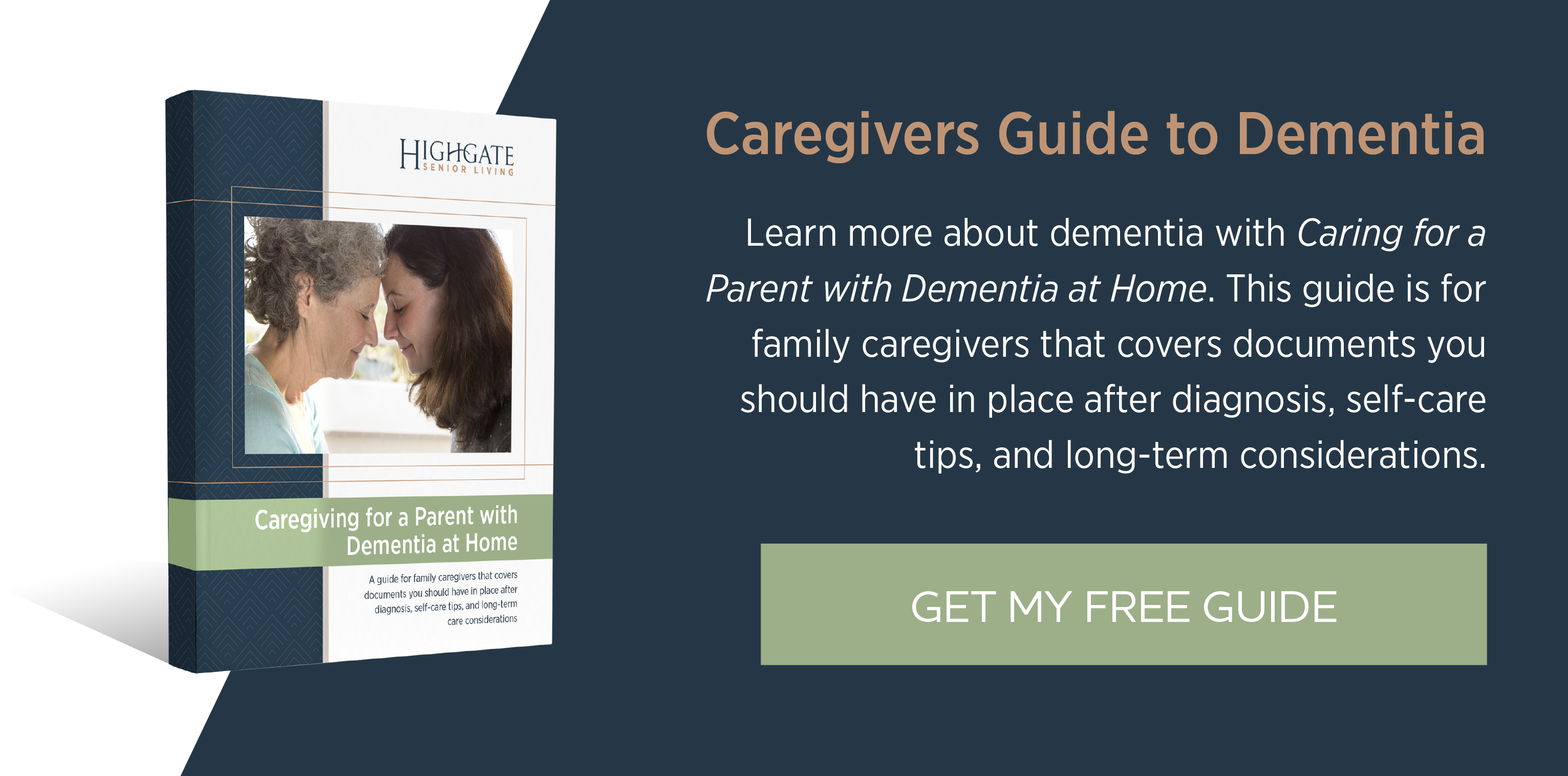
Family caregivers of people with dementia are often called the invisible second patients. Although frustration and stress are normal emotional responses to many of the difficulties of being a caregiver, many studies have found that caregivers for those with dementia have higher levels of burden than other caregivers.
Why? LaTresh Walker, healthcare director of Highgate at Temecula, says two of the biggest challenges Temecula family caregivers face when caring for a loved one with dementia at home are caregiver burnout and role reversal, which is when the children or spouse become the primary caregiver.
The most important thing you can do to help alleviate some of the stress as a family caregiver, Walker says, is to get educated about dementia and remember is that your loved one isn’t trying to be difficult.
“[It’s important to] understand that the disease process has taken over their loved one and that this is not who they truly are,” Walker says. “There will be good days and bad days.”
If you’re a Temecula family caregiver for someone with dementia, here’s a look at some of the challenges you may be facing and things you can do to create more good days than bad for you and your loved one.
Challenge: Changes in Behavior
Watching someone you love slowly lose their mental, physical, and emotional capacities is difficult. When focusing on specific details in certain places, a person with dementia may become restless or upset.
Aggressive behaviors can occur suddenly, with no apparent reason, or result from a frustrating situation. And like changes in memory and behavior, sleep changes result from the impact of dementia on the brain.
When Conflicts Arise
When conflicts arise, the most important thing to remember is that your loved one isn’t trying to be difficult, Walker says. At Highgate, the team members employ a positive approach to memory care.
“We use positive redirection and help the residents live in the moment,” Walker says. “It’s important to be able to validate their strengths and weaknesses.”
For example, if your dad loves to play golf but it’s gotten too difficult for him to play all 18 holes, take him to the practice range at the Legends Golf Club in Temecula for the opportunity to hit a golf ball. Or if your mom gets confused, sad, or restless around dusk (known as sundowning), a memorable keepsake, loved and familiar can serve as a great distraction. Do they have a pet they could take for a walk? A garden they could show you? Do they love telling stories?
Challenge: Caregiver Burnout
Caregivers of people with dementia spend more hours, do more difficult work, and provide assistance for more years than family members caring for older adults without memory loss, according to an article in the journal Health Affairs. Eventually, family caregivers find themselves with so many responsibilities that they neglect taking good care of themselves.
Signs of Caregiver Stress
Signs of caregiver stress – which leads to burnout – include anxiety, anger, social withdrawal, depression, and changes in physical health. Having a good support network you can turn to for advice and encouragement when you feel alone, overwhelmed, or even frustrated can ensure that, even on the toughest of days, you have the support you need to support your loved one, Walker says.
Learn more about support groups near Temecula by visiting the Alzheimer’s Association website.
Challenge: Role Reversal
Because dementia is a progressive disease, it will gradually become harder and harder for your loved one to remember things, think clearly, and communicate with others. Eventually, you might need to start handling the kinds of responsibilities that your parent once handled for you.
It can be challenging to fill a parental role for an elderly mom or dad. It can also be difficult for your senior parent, according to Walker. The parent-child role reversal can cause frustrations and resentments, especially if the adult child acts like their parent’s parent.
One of the best things you can do as a family caregiver is to always consider your loved one with dementia an adult, regardless of the losses they suffer from the decline of their body and brain.
Adapting to Your New Role
Another way to adapt your role with your parents without getting into an unhealthy parental relationship as they age is to consider assisted living or memory care. Once the caregiving role is shifted, you are able to simply enjoy the relationship with your loved one again.
“We’ve seen family caregivers experience peace of mind once their loved one starts receiving memory care at Highgate at Temecula,” Walker says. “They are able to be the child or spouse again and rest easy knowing that their loved one is getting the best care possible.”
It may be tiring and even emotionally exhausting at times, but ensuring you have a solid support system, the proper resources, and a long-term plan allows you to give your loved one the care and support they need.
Download our Guide, Caregiving for a Parent with Dementia at Home for an in-depth look at resources for caregivers, self-care tips, and long-term care considerations.





